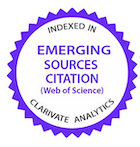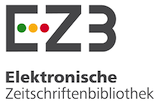Estabelecimento de um protocolo de soroaglutinação rápida (SAR) para detecção de anticorpos para Salmonella Typhimurium em suínos
DOI:
https://doi.org/10.5216/cab.v11i3.6100Palavras-chave:
soroaglutinação rápida, Salmonella Typhimurium, suíno, anticorpo, diagnóstico.Resumo
A Salmonella Typhimurium é um dos principais agentes isolados de casos de toxinfecção alimentar humana no Brasil. Os produtos de origem animal são as principais fontes de infecção e a carne suína e seus derivados são muito relevantes na sua manutenção e transmissão para o homem. A monitorização das salmoneloses na suinocultura é realizada com testes bacteriológicos e sorológicos, como ELISA. No entanto, trata-se de testes que demandam tempo e possuem um custo elevado. A soroaglutinação rápida (SAR) é um teste rápido, pouco dispendioso e que pode ser realizado a campo. Com o intuito de padronizar um teste de SAR para soro suíno, foram testadas sessenta amostras de soro suíno, sendo trinta sororreagentes e trinta não reagentes ao ELISA padrão. Com o soro não diluído, determinou-se que a SAR exibiu sensibilidade, especificidade, valor preditivo positivo e valor preditivo negativo iguais a 96,7%, demonstrando que a soroaglutinação rápida, usando como antígeno Salmonella Typhimurium, é um teste de triagem eficaz para a detecção de anticorpos contra esse patógeno em soro de suínos, apresentando alta sensibilidade, especificidade e valor preditivo positivo.PALAVRAS-CHAVES: Anticorpo, diagnóstico, Salmonella Typhimurium, soroaglutinação rápida, suíno.
Downloads
Não há dados estatísticos.
Publicado
2010-10-02
Como Citar
PEREIRA, Rosecler Alves; MACAGNAN, Marisa; SCHWARZ, Patricia; CANAL, Claudio Wageck; SCHMIDT, Verônica. Estabelecimento de um protocolo de soroaglutinação rápida (SAR) para detecção de anticorpos para Salmonella Typhimurium em suínos. Ciência Animal Brasileira / Brazilian Animal Science, Goiânia, v. 11, n. 3, p. 677–682, 2010. DOI: 10.5216/cab.v11i3.6100. Disponível em: https://revistas.ufg.br/vet/article/view/6100. Acesso em: 21 jan. 2026.
Edição
Seção
Medicina Veterinária
Licença
Copyright (c) 2010 Ciência Animal Brasileira / Brazilian Animal Science

Este trabalho está licenciado sob uma licença Creative Commons Attribution 4.0 International License.
Autores que publicam nesta revista concordam com os seguintes termos:
- Autores mantém os direitos autorais e concedem à revista o direito de primeira publicação, com o trabalho simultaneamente licenciado sob a Licença Creative Commons Attribution que permite o compartilhamento do trabalho com reconhecimento da autoria e publicação inicial nesta revista.
- Autores têm autorização para assumir contratos adicionais separadamente, para distribuição não-exclusiva da versão do trabalho publicada nesta revista (ex.: publicar em repositório institucional ou como capítulo de livro), com reconhecimento de autoria e publicação inicial nesta revista.
- Autores têm permissão e são estimulados a publicar e distribuir seu trabalho online (ex.: em repositórios institucionais ou na sua página pessoal) a qualquer ponto antes ou durante o processo editorial, já que isso pode gerar alterações produtivas, bem como aumentar o impacto e a citação do trabalho publicado (Veja O Efeito do Acesso Livre).






























